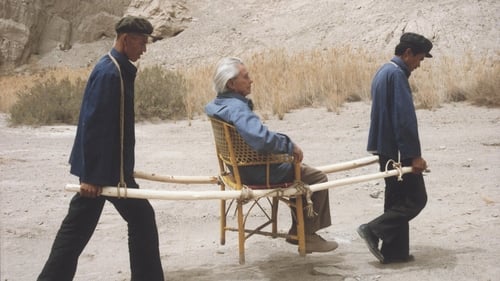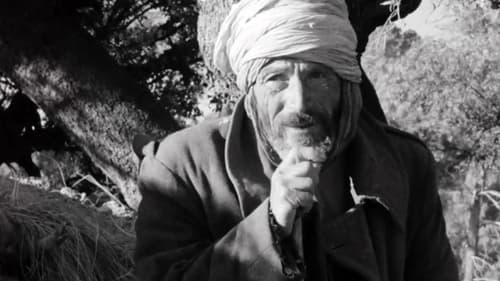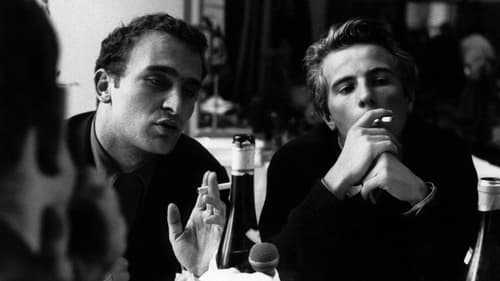Marceline Loridan-Ivens
Рождение : 1928-03-19, Épinal, France
Смерть : 2018-09-18

Self

Self
The untold story of a world-renowned place of remembrance of the Holocaust in France, the internment camp of Drancy, which was the central transit for the near totality of the 76 000 deported Jews of France during World War II.

A seventy-five-minute documentary featuring outtakes from "Chronicle of a Summer" (1961), along with new interviews with co-director Edgar Morin and some of the film’s participants.

Self

Marceline
A realist dramedy about dedicated social workers who devote their long shifts to helping pregnant women.

Writer
Myriam, a survivor of the concentration camp at Auschwitz, is a filmmaker and journalist who has spent many years living abroad. She takes part in a memorial event at the town hall in Paris commemorating the liberation of the camp, where she wins a flight to Cracow. At first she refuses to accept the prize, then decides to go.

Director
Myriam, a survivor of the concentration camp at Auschwitz, is a filmmaker and journalist who has spent many years living abroad. She takes part in a memorial event at the town hall in Paris commemorating the liberation of the camp, where she wins a flight to Cracow. At first she refuses to accept the prize, then decides to go.

In 1998, a German documentary filmmaker named Daniela Schulz made a film about Joris Ivens’s dynamic partner, Bride of the Wind (Windsbraut), as a tribute to their decades of work together. Calling her friend Marceline “the second part of this legend [of Joris Ivens]”, she pays tribute to her as one who, after losing her “beloved and symbiotic partner, has kept her dynamism and liveliness as a person and a filmmaker”. The cinematic portrait illustrates how Loridan was in fact much more than a shadow at Ivens’s side.

Writer
It is an autobiographical fiction starring Ivens as an old man who has spent his life trying to "tame the wind and harness the sea" by capturing them on film.

Director
It is an autobiographical fiction starring Ivens as an old man who has spent his life trying to "tame the wind and harness the sea" by capturing them on film.

Writer
Documentary about the Kazakh minority in western China in the last years of the Cultural Revolution.

Director
Documentary about the Kazakh minority in western China in the last years of the Cultural Revolution.

Director
A short documentary about the Uyghur minority of western China.

Director
A César award winning documentary about a high school in Beijing where a student throws a ball in the direction of the teacher who had just asked them to stop playing. The class then meets to discuss this problem.

Editor
From 1972 until 1974, Joris Ivens and Marceline Loridan, along with a Chinese film crew, documented the last days of the Cultural Revolution, marking the end of an era. The vast amount of footage they shot was edited into 14 films of varying lengths. Focusing on ordinary people spread over a wide geographic area—many of whom were living and working in collectives—the filmmakers recorded a unique moment in history, and also captured some of the more enduring aspects of Chinese culture.

Director
Joris Ivens and wife Marceline Loridan took their cameras into Pharmacy No. 3 in Shanghai, which in addition to dispensing drugs manages an outreach program of medical services, an extension of the pharmacy’s in-house medical care center.

Director
From 1972 until 1974, Joris Ivens and Marceline Loridan, along with a Chinese film crew, documented the last days of the Cultural Revolution, marking the end of an era. The vast amount of footage they shot was edited into 14 films of varying lengths. Focusing on ordinary people spread over a wide geographic area—many of whom were living and working in collectives—the filmmakers recorded a unique moment in history, and also captured some of the more enduring aspects of Chinese culture.

Writer
On the border of North and South Vietnam, civilians live underground and cultivate their land in the dead of night, farmers take up arms, and bombs fall like clockwork. Joris Ivens and Marceline Loridan’s record of daily life in one of the most volatile regions of a war-torn, divided country is both a hazardous piece of first-hand journalism and a shattering work in its own right, simmering with barely repressed anger.

Director
On the border of North and South Vietnam, civilians live underground and cultivate their land in the dead of night, farmers take up arms, and bombs fall like clockwork. Joris Ivens and Marceline Loridan’s record of daily life in one of the most volatile regions of a war-torn, divided country is both a hazardous piece of first-hand journalism and a shattering work in its own right, simmering with barely repressed anger.

Assistant Director
Pro-Vietnamese film created by Dutch filmmaker Joris Ivens. This black and white film begins with an introduction by Bertrand Russell, who explains the history of the run-up to the American involvement in Vietnam. The film shows scenes of Vietnamese soldiers in trenches, American helicopters, agricultural workers, and children assembling anti-aircraft shells. A narrator speaks of the American invasion as being on par with the Germans during World War II and characterizes the Vietnamese as resistance fighters. Anti-American protests are shown. Ivens is shown interviewing Ho Chi Minh. Vietnamese villagers build dams for rice paddies, make traps using bamboo spikes, and take cover during air raids. Scenes include the headquarters of the National Liberation Front, a military execution, bombings, and villagers attempting to shoot down US bomber planes.

Director
Documentary on the beginnings of Algerian independence filmed during the summer of 1962 in Algiers. The film was banned in France and Algeria but won the Grand Prize at the Leipzig International Film Festival in 1965. Out of friendship, the production company Images de France sent an operator, Bruno Muel, who later declared: "For those who were called to Algeria (for me, 1956-58), participating in a film on independence was a victory over horror, lies and absurdity. It was also the beginning of my commitment to the cinema."

Herself
Paris, summer of 1960. Anthropologist and filmmaker Jean Rouch, along with sociologist and film critic Edgar Morin, both assisted by Marceline and Nadine, roam the crowded streets asking ordinary people how they deal with the misfortunes of life. Are you happy? But their real purpose is to find out if people can speak sincerely in front of a camera and how they react when they are later invited to analyze the meaning of their answers.


















